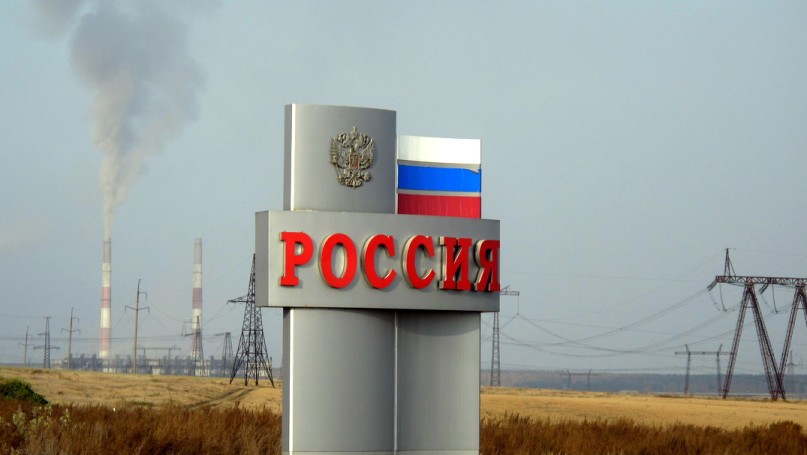
Russian Energy in a Changing World: What is the Outlook for the Hydrocarbons Superpower?
Edited by: Jakub M. Godzimirski
Farnham: Ashgate, 2013
I read this book as the Crimea was being annexed by Russia and the future of east Ukraine was under serious question. As a result, the issue of the dependence of Europe on Russia as the supplier of hydrocarbons, particularly gas, was a matter of considerable discussion and concern for Western policy makers. The reverse dependence, of Russia on Europe as a market for its hydrocarbon exports, was also on the agenda.
This book, although published before the dramatic events that began in Ukraine in November 2013, makes a valuable contribution to our understanding of the recent past and will help us understand the future. The 2014 Ukrainian crisis, although bigger and more serious than its predecessors, is, of course, not the first example of conflict between Russia and its southern neighbour which has had a major hydrocarbon dimension. The book often refers to Ukraine as a focal point for tension, in particular the gas crisis of 2009, when Russia’s cutting of deliveries to Ukraine had a direct effect on gas availability in Europe. And so the issues of mutual dependence between Russia as supplier and Europe as buyer, and the alternatives both sides might have, have been on the agendas of commentators and policy makers on both sides of the whatever the curtain now separating them is called for some time.
As the book makes clear, there are plenty of question marks about Russia’s future capacity as a major supplier of hydrocarbons to world markets, as Soviet-era deposits are depleted and the move has to be made to ever more remote areas with the extra production costs that come with extremely challenging locations. It should be stressed that these are question marks about Russian capacity to maintain output at a competitive price. The book does not claim that Russia definitely faces a crisis in this regard, but the doubts raised are serious.
Part of the issue is how much the Russian authorities will have to continue to make new, high-cost gas available to domestic users, retail and industrial, at subsidised prices. This matter is discussed at length in an impressive way in Chapter 7. To that discussion of gas could have been added an analysis of the very high political sensitivity of the price of petrol, diesel, and bunker oil on domestic markets, and the policy and regulatory contortions that are required to address it, with the added complication in the oil sector of the relative incentives for the export of crude versus domestic processing.
Although at the time of writing the issue might not have had the sharp topicality that it has acquired since publication, it is made clear in the book that the technologies required for exploitation of new deposits – deepwater Arctic deposits, for example – are beyond current Russian capacity, making alliances with global companies essential. Production and delivery infrastructure costs are also beyond the Russian financial system, making Russia’s future as a hydrocarbons superpower dependent not just on non-Russian technology, but also finance.
Issues on the supply side are nicely balanced in the book by discussion of the demand side. It is not only since events in Ukraine from November 2013 that Europe has felt uncomfortable about its dependence on Russian gas. It has been trying to both diversify its sources and change the way it deals with Gazprom since well before those events, and those efforts receive considerable attention in the book. The analysis suggests that, while progress had been made and can be continued, dependence will continue at a significant level for the foreseeable future. It is an analysis which retains its validity in new circumstances.
Indeed the message of the book in post-Crimea circumstances is that mutual dependence remains a problem for both sides. Just as Europe cannot say no to Russia as a supplier in the foreseeable future, neither can Russia say no to Europe as a buyer, despite all its talk of turning to Asian markets.
Russia’s prospects in Asia receive some judicious attention in the book. However, there is no chapter devoted exclusively to it, something which would have been a welcome addition. (There is a chapter by Michael Bradshaw precisely on this issue in another book, which appeared slightly after the one under review: Russian Energy and Security up to 2030, edited by Oxenstierna and Tynkkynen, and published by Routledge. The two books cover some of the same ground, but also complement each other nicely.)
If detailed analysis of Russian prospects in Asia is a gap in the book, so also is more detailed analysis, in terms of Russian capacity to become or retain its status as a hydrocarbon superpower on the supply side, of geological and technology issues. One cannot be too harsh in identifying these gaps. The technical aspects of geology are not easy, both in terms of access to information and presentation in what is essentially a social sciences book. It is also true that while there is an awareness in Russia today that there are serious problems with exploration, administrative, and incentive structures, there has been, as yet, little policy action to report. An assessment of Russia’s capacity to operate without Western technology is also a difficult task, but obviously an important one in current circumstances.
These gaps do not reduce the value of the book. It does what it does very well. Although an edited book, the editor has kept duplication to a minimum, indeed to a minimum that reinforces rather than duplicates arguments. Anyone who writes on Russia is always worried that events will very rapidly overtake one’s publication. In the case of this book, that might appear at first glance to be a problem. In fact, the events in the Ukraine make it a particularly timely book, which will retain its utility for some time to come, regardless of what transpires in that part of the world.